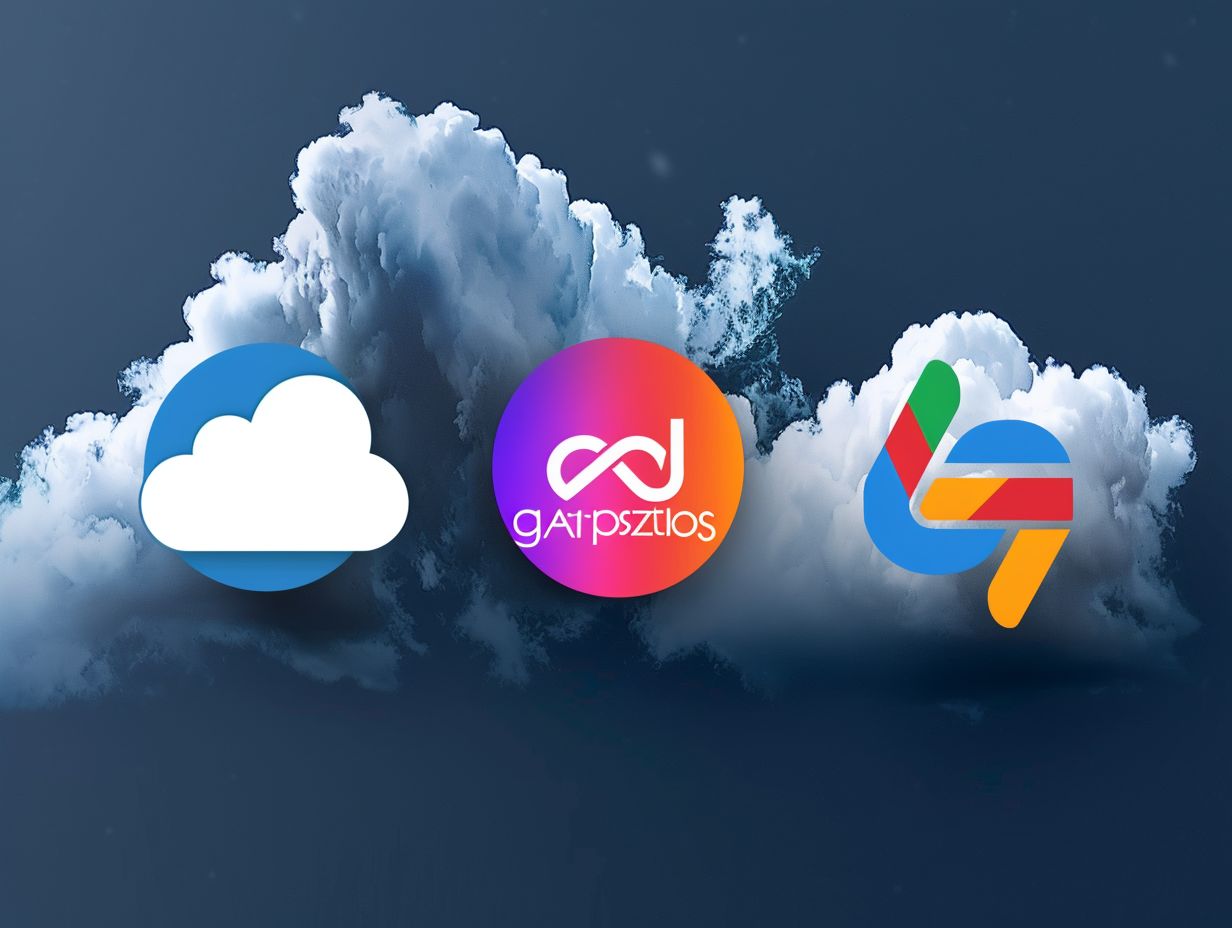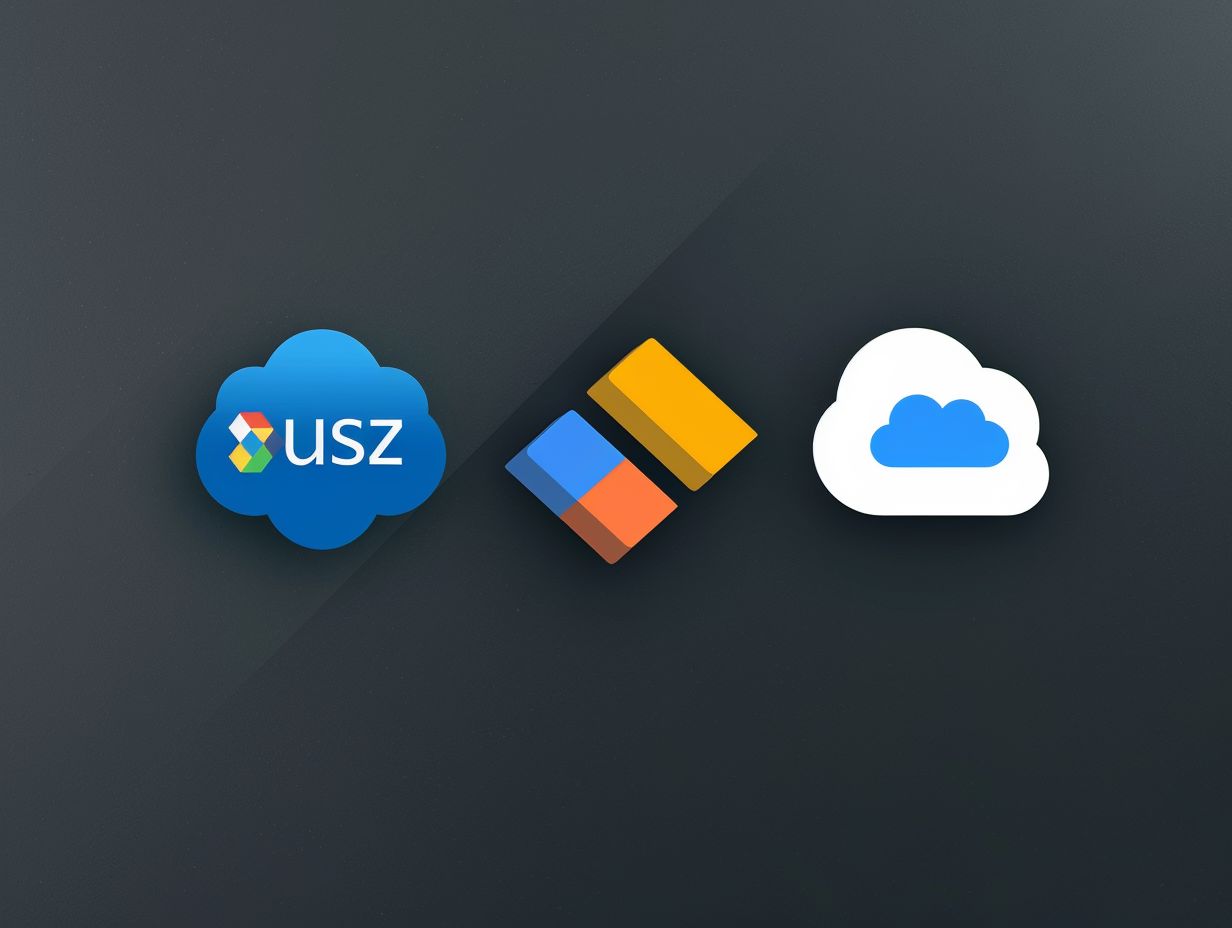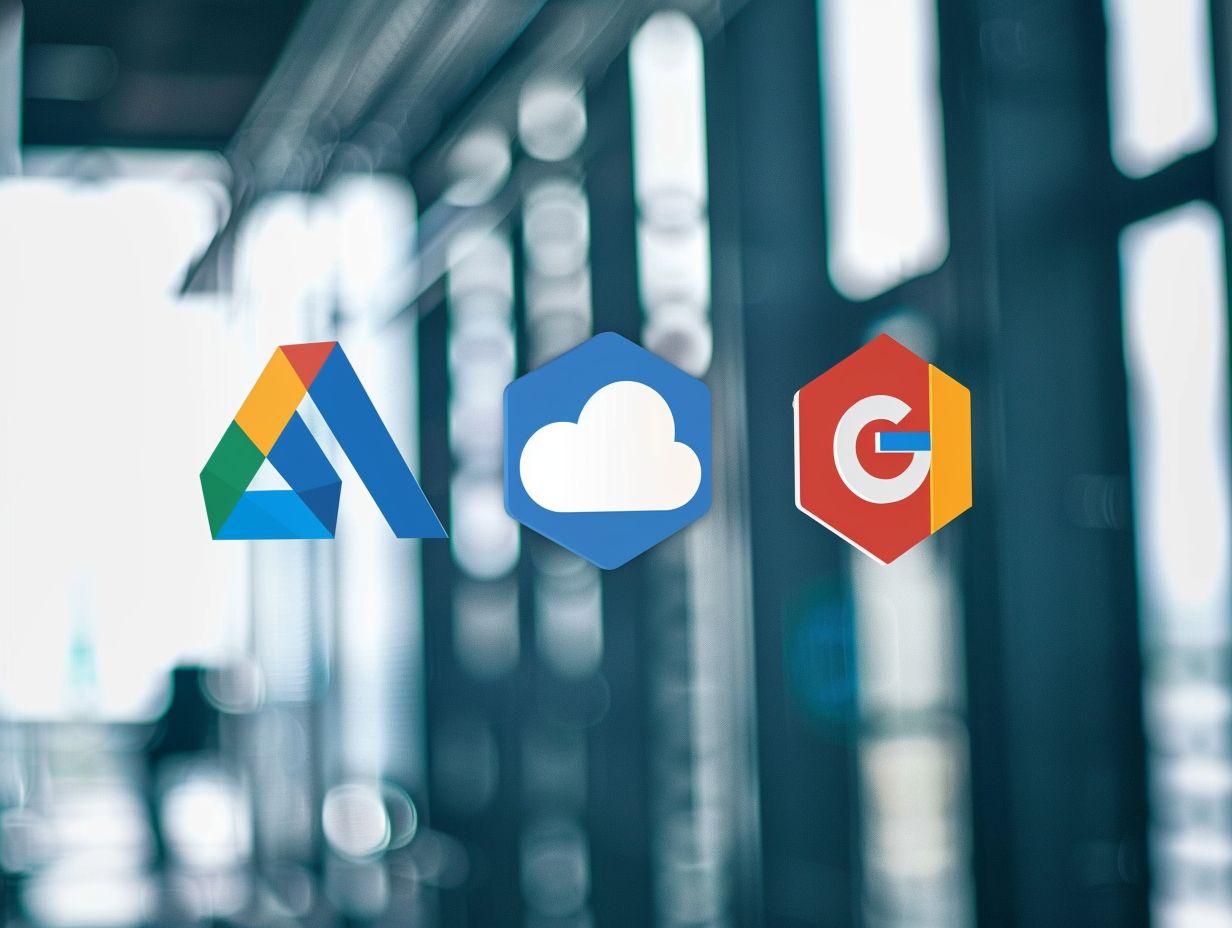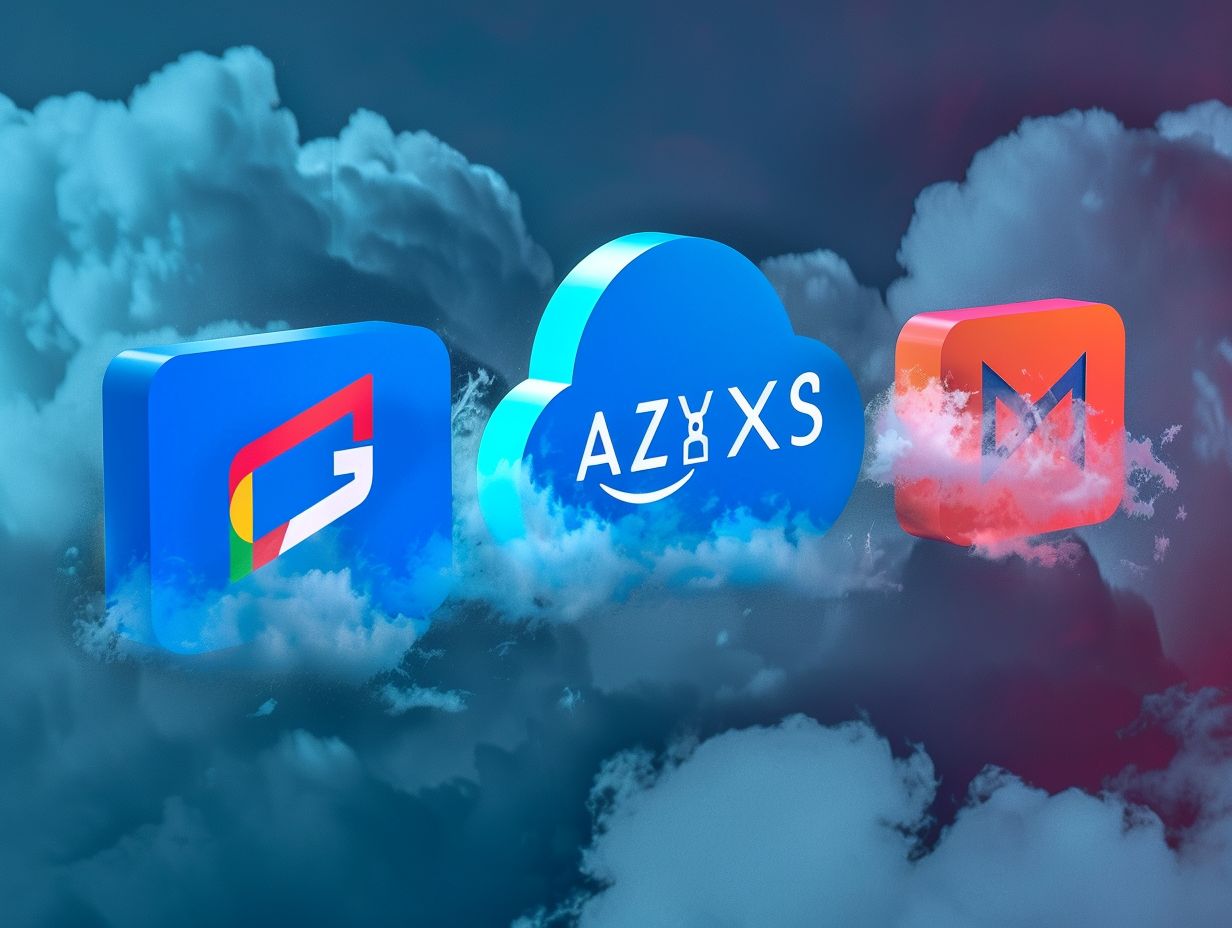Are you curious about cloud computing and the benefits it can offer? This article will explore the world of cloud providers, with a focus on the top players in the industry – Amazon Web Services (AWS), Microsoft Azure, and Google Cloud. We will discuss the cost savings and scalability that come with using cloud services. Additionally, we will compare the features and services offered by each provider and provide tips on how to choose the right cloud provider for your specific needs. Whether you are a beginner or looking to expand your knowledge, this article will guide you through the steps of getting started with cloud computing.
Key Takeaways:

- AWS, Microsoft Azure, and Google Cloud are the top cloud providers for beginners, offering a range of services and features to meet different needs.
- Consider factors such as cost, scalability, and available services when choosing a cloud provider for your business.
- Setting up an account and deploying services with a cloud provider is a simple process that can save costs and improve efficiency for your business.
What is Cloud Computing?
Cloud computing refers to the delivery of computing services including servers, storage, databases, networking, software, analytics, and more over the Internet. These services are typically offered on a pay-as-you-go basis, allowing you to scale your IT resources efficiently without the need for investing in costly infrastructure. Key components of cloud computing include Infrastructure as a Service (IaaS), Platform as a Service (PaaS), and Software as a Service (SaaS), each catering to different needs of organizations. AWS, Azure, and Google Cloud are among the leading providers of cloud services, offering a wide range of tools and solutions for you to store data, run applications, and leverage advanced technologies like artificial intelligence and machine learning.
Benefits of Using Cloud Providers
Utilizing cloud providers presents you with a multitude of benefits, including cost efficiency, scalability, improved security, and simplified management.
Cost Savings and Scalability
Cost savings and scalability are key benefits of cloud computing solutions, allowing businesses to optimize their IT expenses and easily adjust resources based on demand. Cloud services offer a variety of pricing models, giving organizations the flexibility to choose the most cost-effective option for their specific needs. Whether opting for pay-as-you-go, subscription-based, or reserved instances, you can tailor your spending to match your usage patterns. The ability to scale resources up or down quickly in the cloud means that businesses can efficiently utilize computing power without maintaining excess infrastructure. This dynamic scaling capability ensures that resources are used efficiently, avoiding unnecessary costs and maximizing operational efficiency.
Comparison of Top Cloud Providers
 When you are comparing the top cloud providers such as Amazon Web Services (AWS), Microsoft Azure, and Google Cloud Platform, you should evaluate factors like performance, availability, pricing, and service features to determine the best fit for your business needs.
When you are comparing the top cloud providers such as Amazon Web Services (AWS), Microsoft Azure, and Google Cloud Platform, you should evaluate factors like performance, availability, pricing, and service features to determine the best fit for your business needs.
Overview of AWS, Microsoft Azure, and Google Cloud
You are likely familiar with the major players in the cloud computing industry, namely Amazon Web Services, Microsoft Azure, and Google Cloud. These leading providers offer a diverse array of services and solutions tailored to businesses and organizations across the globe. AWS, Azure, and Google Cloud have solidified their positions in the market by offering robust infrastructure, scalability options, advanced security features, and an extensive global network of data centers. AWS, as a trailblazer in the cloud services realm, offers a wide spectrum of services such as EC2, S3, and Lambda functions. Azure, supported by Microsoft’s extensive enterprise expertise, delivers seamless integration with Windows-based environments and a comprehensive suite of AI and machine learning tools. Google Cloud, on the other hand, shines in the realms of data analytics and machine learning, with services like BigQuery and TensorFlow gaining recognition among developers and data scientists.
Features and Services Offered by Each Provider
AWS, Microsoft Azure, and Google Cloud offer a varied range of features and services, encompassing computing alternatives, storage solutions, network connectivity, and advanced security measures tailored to address the requirements of contemporary enterprises.
Infrastructure, Storage, and Computing Options
Cloud providers provide you with a range of infrastructure, storage, and computing choices. This allows your business to customize resources according to performance needs, data storage requirements, and processing capabilities. You have various options at your disposal. You can deploy virtual machines to allocate computing power flexibly. Depending on your specific business requirements, you can opt for public, private, or hybrid cloud deployments. Additionally, you can integrate advanced network security features to protect critical data. The storage solutions’ flexibility allows you to adjust your data storage needs seamlessly. Whether you opt for object storage, block storage, or file storage options, you can scale your storage requirements accordingly. This aids in optimizing resource allocation and operational efficiency.
Choosing the Right Cloud Provider for Your Needs
 When selecting the ideal cloud provider, you need to evaluate factors such as pricing, performance, security, geographic regions, and compatibility with existing business applications. This assessment is crucial to ensure seamless integration and optimal functionality for your business operations.
When selecting the ideal cloud provider, you need to evaluate factors such as pricing, performance, security, geographic regions, and compatibility with existing business applications. This assessment is crucial to ensure seamless integration and optimal functionality for your business operations.
Factors to Consider
When selecting a cloud provider, you need to take into account various factors, including data security protocols, compliance standards, service-level agreements, pricing structures, and the provider’s history of delivering dependable services. It is important for businesses to assess the efficacy of the cloud provider’s data protection measures to safeguard sensitive information from cyber threats and unauthorized access. Compliance requirements are particularly significant in industries with strict regulations, necessitating that companies verify the provider’s adherence to relevant standards. Performance guarantees are essential for evaluating the reliability and availability of services, ensuring optimum performance levels during peak usage. Developing strategic partnerships with the cloud provider can also enhance business operations and promote innovation through collaborative initiatives.
Getting Started with Cloud Computing
When embarking on the cloud computing journey, you will need to:
- Set up an account
- Carefully select appropriate services
- Deploy resources efficiently
- Optimize configurations
This will allow you to leverage the full potential of cloud-based solutions to enhance your business operations.
Steps for Setting Up an Account and Deploying Services
To initiate cloud services, you need to start by creating an account with your chosen provider. During the account setup process, you will be required to provide basic information such as your email, username, and password. Once your account is established, proceed to configure settings based on your specific requirements. It is important to ensure that security measures are in place to protect the integrity of your data. After configuring your settings, you can then select the desired cloud services, such as storage, computing power, or networking capabilities. With these services chosen, you can begin deploying your applications or data workloads to the cloud environment for seamless accessibility and management. It is crucial to follow best practices for network connectivity to optimize performance and ensure seamless integration with your existing business intelligence systems or hybrid cloud solutions. This will help you make the most out of your cloud services while maintaining a secure and efficient cloud environment.
Frequently Asked Questions

Which are the top cloud providers for beginners?
The top cloud providers for beginners are AWS, Microsoft Azure, and Google Cloud.
What is AWS and why is it a top cloud provider for beginners?
AWS (Amazon Web Services) is a cloud computing platform that offers a wide range of services for building and managing applications and websites. It is a top cloud provider for beginners because of its user-friendly interface, extensive documentation and training materials, and affordable pricing options.
What is Microsoft Azure and why is it a top cloud provider for beginners?
Microsoft Azure is a cloud computing service provided by Microsoft. It offers a range of services such as virtual machines, databases, and storage options. It is a top cloud provider for beginners because of its seamless integration with other Microsoft products and easy-to-use interface.
What is Google Cloud and why is it a top cloud provider for beginners?
Google Cloud is a suite of cloud computing services provided by Google. It offers a range of services such as virtual machines, storage options, and analytics tools. It is a top cloud provider for beginners because of its intuitive dashboard, extensive support and resources, and competitive pricing.
What are the main differences between these top cloud providers?
The main differences between these top cloud providers include their pricing models, available services, and level of support. AWS is known for its pay-as-you-go pricing and vast selection of services, while Microsoft Azure offers seamless integration with other Microsoft products. Google Cloud is known for its competitive pricing and advanced analytics tools.
Can I use multiple cloud providers at the same time?
Yes, you can use multiple cloud providers at the same time. This is known as a multi-cloud strategy and it allows businesses to take advantage of the unique features and services offered by different providers.
